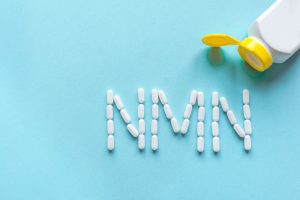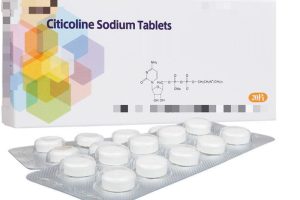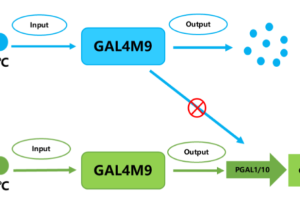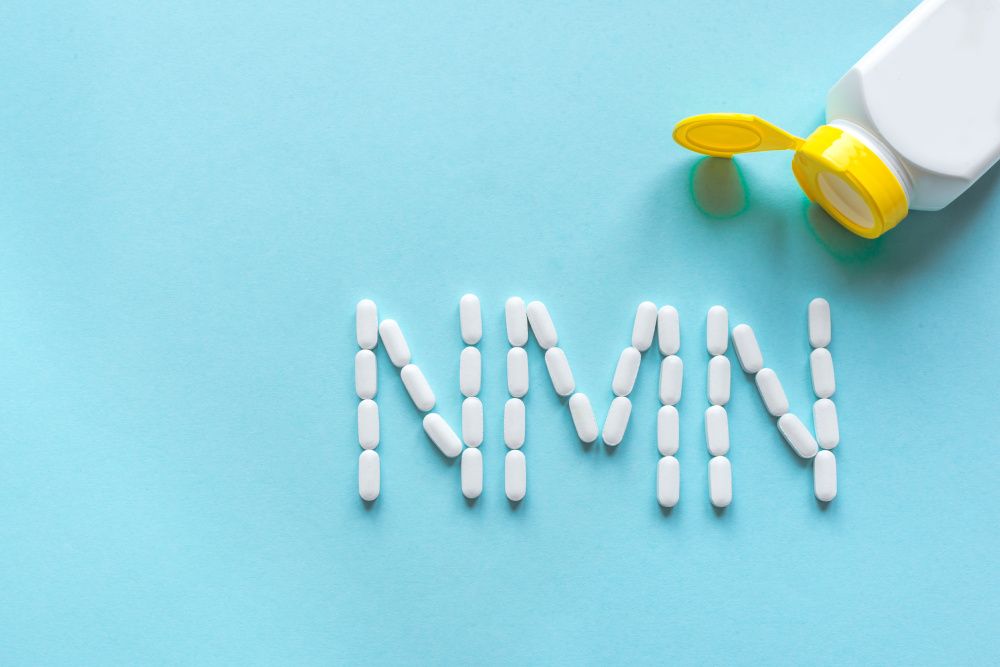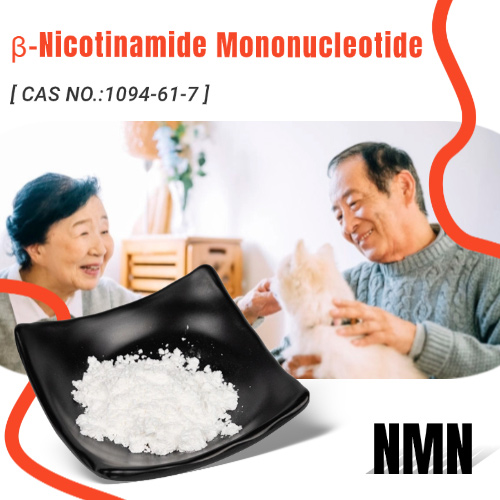NMN is undoubtedly a star among anti-aging supplements, highly favored both in the scientific research field and in the consumer market.
Every year, a large number of NMN anti-aging studies are published in internationally renowned journals, demonstrating multi-faceted improvement effects.
function of NMN is mainly achieved by increasing the level of NAD+ in the human body
- Boost the energy level of cells by 95%, making people more energetic;
- Activate seven longevity protein genes to make people live longer;
- Provide repair enzymes for cell self-repair, making people healthier;
The following is a detailed introduction to the 20 possible functions of NMN:
1. Enhance energy metabolism
Principle:
NMN can be converted into NAD+ in the body, and NAD+ is an extremely important coenzyme in the process of cellular energy metabolism.
It participates in key metabolic reactions such as the tricarboxylic acid cycle and can convert nutrients in food into an energy form (ATP) that cells can utilize.
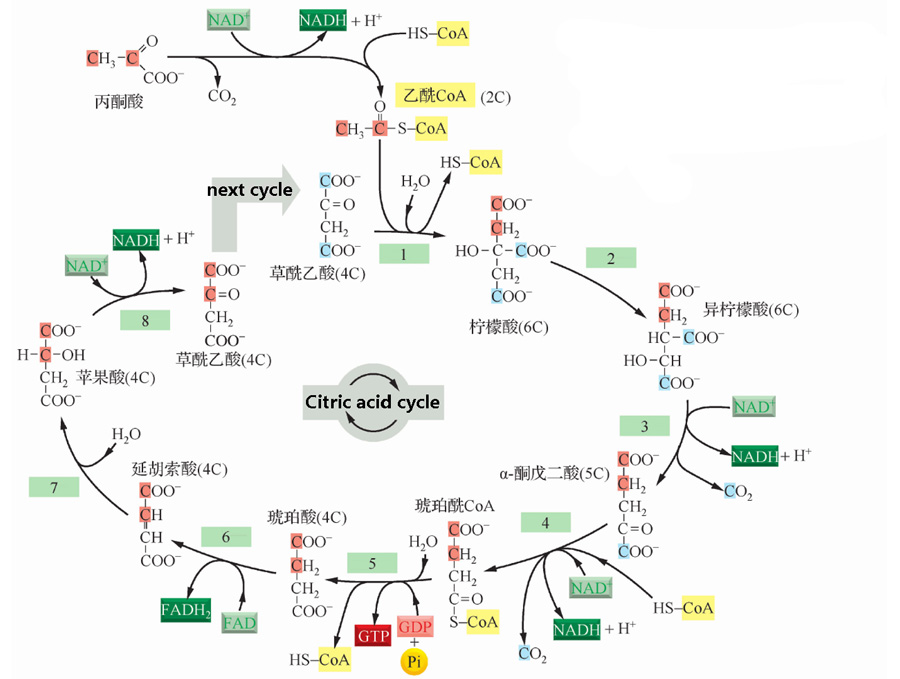
As people age, the level of NAD + in the human body gradually decreases, leading to a reduction in energy metabolism efficiency. Supplementing NMN can help increase the level of NAD +, thereby enhancing the energy metabolism capacity of cells.
Performance:
After supplementing NMN, the human body may feel more energetic, with reduced fatigue, and its athletic ability and endurance may also improve, making it more vigorous in daily activities.
2. Delay aging
At the cellular level:
As age increases, DNA damage within cells accumulates continuously, while the DNA’s repair capacity gradually declines. This is one of the important driving factors of aging.
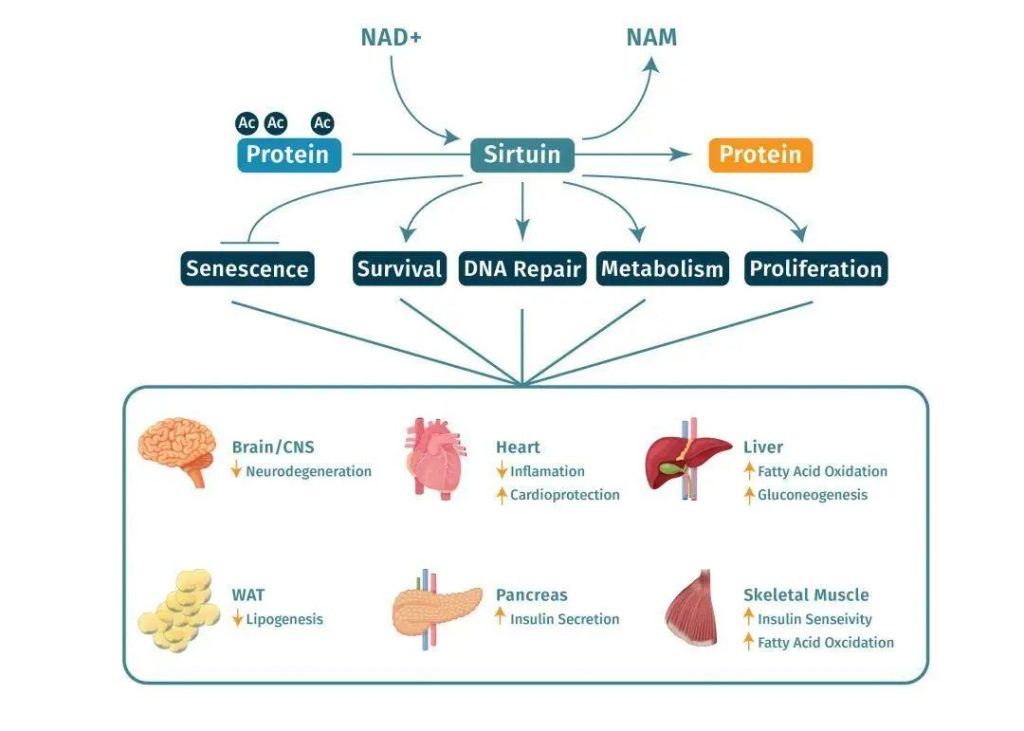
NAD + -dependent proteins such as Sirtuins have functions such as regulating cell survival, apoptosis, and DNA repair.
After supplementing NMN to increase NAD + levels, these proteins can be activated, enhancing the DNA repair ability of cells, reducing the accumulation of DNA damage, and maintaining the normal function and structure of cells. Thereby delaying the aging process of cells.
Overall physiological function level:
By improving the metabolism and function of cells, NMN has certain positive effects on the functions of various organs and systems in the body, thereby delaying the aging of the body as a whole, such as improving skin condition, enhancing muscle strength, and improving cognitive function, etc.
3. Improve cognitive function
Protection of brain nerve cells:
Brain nerve cells have extremely high demands for energy and nutrients and are vulnerable to damage from factors such as oxidative stress.
NMN provides more energy support for nerve cells by increasing NAD + levels, while enhancing the antioxidant capacity of nerve cells, reducing the damage of free radicals to nerve cells, and protecting the structure and function of nerve cells.
Promote the synthesis and release of neurotransmitters:
Neurotransmitters are chemical substances that transmit information between nerve cells and are crucial for cognitive function.
NMN may enhance the brain’s learning, memory and thinking abilities by influencing related signaling pathways and promoting the synthesis and release of neurotransmitters such as acetylcholine.
For instance, in animal experiments, it was found that mice supplemented with NMN performed significantly better in learning and memory tests than those not supplemented.
4. Enhance immunity
Regulate metabolism of immune cells
The normal function of immune cells requires sufficient energy and nutrients for support.
NMN can increase the NAD + level within immune cells, optimize the energy metabolism of immune cells, and enable immune cells to more effectively perform functions such as immune defense and immune surveillance.
For instance, enhance the activity and proliferation capacity of immune cells such as T cells and B cells, and improve their ability to recognize and attack pathogens.
Maintain function of immune organs
Immune organs such as the thymus and spleen are the sites where immune cells are produced, developed and matured.
As people age, these immune organs gradually atrophy and their functions decline.
NMN may provide a guarantee for the normal development and maturation of immune cells by improving the microenvironment of immune organs, maintaining their structure and function.
5. Protect the cardiovascular system
Maintain normal function of cardiovascular cells:
Cardiovascular cells require a stable energy supply and a good metabolic state to maintain normal functions such as contraction and relaxation.
NMN can increase the NAD + level within cardiovascular cells, enhance the energy metabolism of cells, and ensure the normal operation of cardiovascular cells.
It can also reduce oxidative stress and inflammatory responses within cardiovascular cells, lowering the risk of cell damage and apoptosis.
Improve vascular endothelial function:
Vascular endothelial cells are an important component of the inner wall of blood vessels. Abnormal function of these cells can lead to disorders such as vasodilation and contraction, thickening of the vessel wall, and increase the risk of cardiovascular diseases.
NMN can promote the production of vasodilator factors such as nitric oxide by vascular endothelial cells, improve the function of vascular endothelium, increase the elasticity and permeability of blood vessels, lower blood pressure, and reduce the occurrence of atherosclerosis.
6. Promote muscle growth
Increase energy supply of muscle cells:
Muscle cells require a large amount of energy during contraction and movement. After NMN is converted into NAD +, it can participate in the energy metabolism process of muscle cells, providing them with sufficient energy and promoting their growth and development.
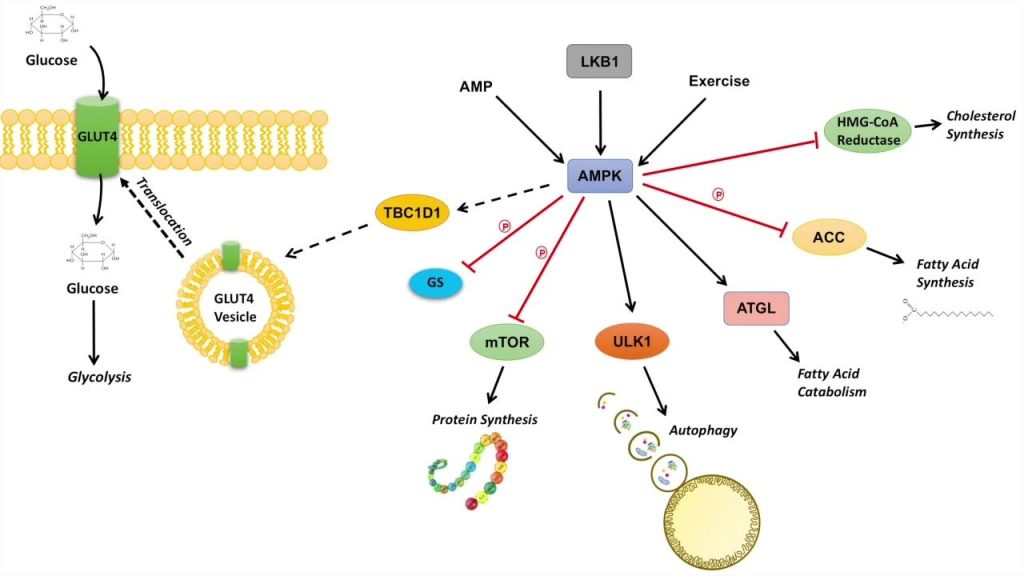
Some studies have found that NMN may increase muscle mass and strength by activating signaling pathways such as AMPK, promoting protein synthesis and the proliferation and differentiation of muscle stem cells.
For the elderly or people with diseases such as muscle atrophy, supplementing NMN may help improve muscle condition.
7. Improve sleep quality
Regulate biological clock
The biological clock of the human body is regulated by multiple factors, among which the NAD + -dependent Sirtuins protein family plays a significant role in the regulation of the biological clock.
Supplementing NMN can increase the level of NAD +, thereby regulating the activity of Sirtuins protein, making the rhythm of the biological clock more stable, and improving the sleep-wake cycle.
Relieve nervous tension
NMN has a certain neuroprotective effect, which can relieve the stress and tension of the nervous system, help people relax both physically and mentally, and make it easier for them to enter a deep sleep state, thereby improving sleep quality.
8. Antioxidant effect
Directly eliminate free radicals
Free radicals are highly active molecules produced during the metabolic process in the body. They attack biomolecules within cells, such as DNA, proteins, lipids, etc., leading to cell damage and aging.
NMN itself has a certain antioxidant capacity and can directly react with free radicals to eliminate them, reducing the damage of free radicals to cells.

Enhance activity of antioxidant enzymes:
There are some antioxidant enzymes in the body, such as superoxide dismutase (SOD), glutathione peroxidase (GSH-Px), etc., which can catalyze the decomposition and clearance of free radicals.
NMN can increase the level of NAD +, activate related signaling pathways, enhance the gene expression and activity of these antioxidant enzymes, and improve the antioxidant defense capacity of cells.
9. Regulate blood sugar levels
Improve insulin sensitivity
Insulin is an important hormone for regulating blood sugar. Decreased insulin sensitivity is one of the significant causes of elevated blood sugar and diabetes.
NMN can lower blood sugar levels by improving the metabolic state and signal transduction of cells, enhancing the sensitivity of insulin receptors, strengthening cells’ response to insulin, promoting the uptake and utilization of glucose.
The process of sugar metabolism involves the participation of various enzymes. NMN can affect the activity of these enzymes, such as promoting the activity of enzymes like hexokinase and pyruvate kinase, accelerating the decomposition and metabolism of sugar, and reducing blood sugar concentration.
10. Regulate blood lipids
Promote fat breakdown
NMN can activate some signaling pathways within fat cells, such as the AMPK signaling pathway, promoting fat decomposition and oxidation, and reducing fat accumulation in the body.
It can also enhance the liver’s metabolic capacity of fatty acids and reduce the levels of lipid components such as triglycerides and cholesterol in the blood.
Regulate lipoprotein metabolism
Lipoproteins are important carriers for transporting blood lipids. NMN can affect the synthesis, secretion and metabolic processes of lipoproteins, such as increasing the level of high-density lipoprotein (HDL, that is, “good cholesterol”) and reducing the level of low-density lipoprotein (LDL, that is, “bad cholesterol”), thereby improving the metabolic status of blood lipids.
11. Protect liver
Reduce oxidative stress in liver:
The liver is an important organ for metabolism in the body and is prone to oxidative stress due to various factors.
The antioxidant effect of NMN can reduce the generation of free radicals in liver cells, lower the level of oxidative stress, and protect liver cells from oxidative damage.
Inhibit inflammatory response of liver
Inflammatory responses play an important role in the occurrence and development of liver diseases.
NMN can regulate the function of immune cells in the liver, reduce the release of inflammatory factors, inhibit the occurrence and development of inflammatory responses, and has a certain protective effect on liver diseases such as hepatitis and fatty liver.
12. Protect kidneys
Maintain energy metabolism of kidney cells:
Kidney cells need to constantly carry out material transport and metabolic activities, which consume a large amount of energy.
NMN can increase the NAD + level within kidney cells, ensure the energy supply to the cells, and maintain the normal metabolism and function of kidney cells.
Alleviate ischemia-reperfusion injury of kidneys:
During some kidney diseases or surgical procedures, the kidneys undergo a process of ischemia-reperfusion, which can lead to damage and dysfunction of kidney cells.
NMN can alleviate the damage to the kidneys caused by ischemia-reperfusion by enhancing the antioxidant capacity and energy metabolism level of kidney cells.
13. Promote intestinal health
Regulate balance of intestinal flora
The intestinal microbiota has a significant impact on human health. They are involved in various physiological processes such as food digestion, nutrient absorption, and immune regulation.
NMN may maintain the balance of the intestinal flora by influencing the microenvironment of the intestine, regulating the composition and distribution of the intestinal flora, increasing the number of beneficial bacteria, reducing the growth of harmful bacteria, and maintaining the balance of the intestinal flora.
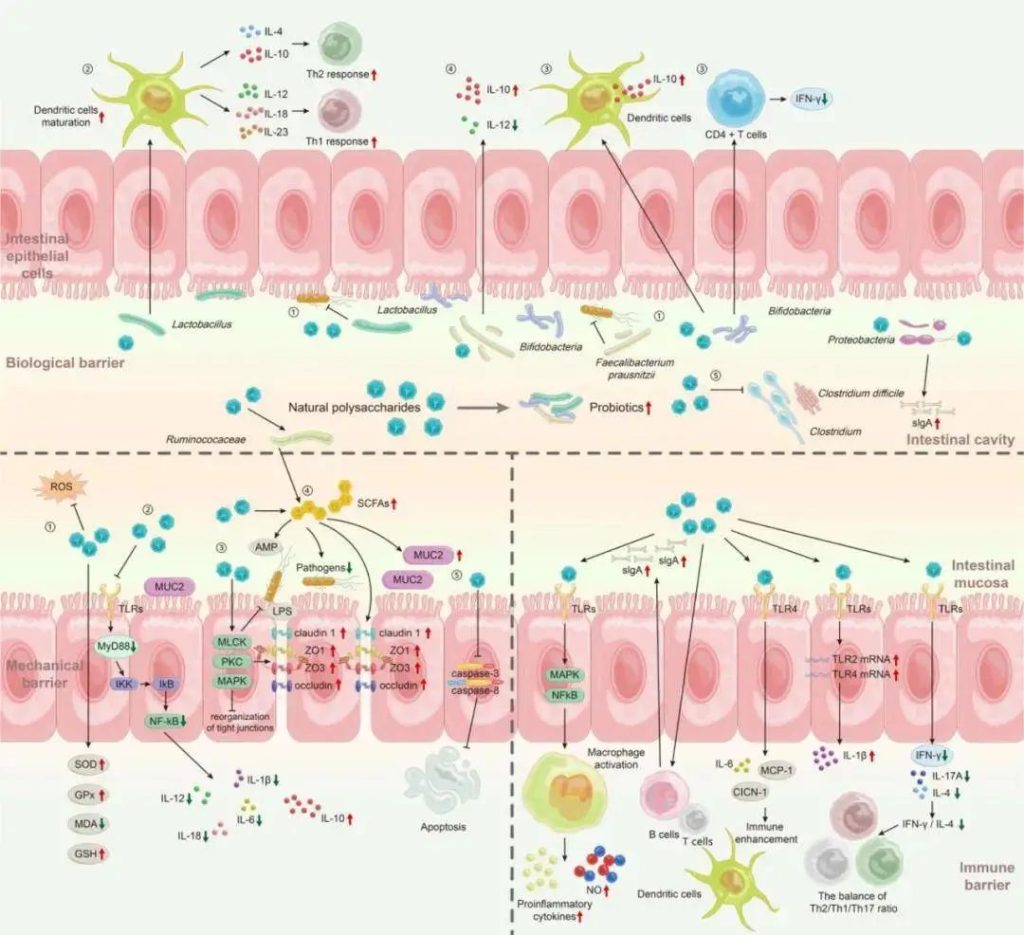
Enhance intestinal barrier function:
The intestinal barrier is an important line of defense against harmful substances entering the body, including physical barriers, chemical barriers and immune barriers, etc.
NMN can promote the growth and repair of intestinal epithelial cells, enhance the tight connection of intestinal mucosa, improve the barrier function of the intestine, and reduce the occurrence of intestinal inflammation and infection.
14. Improve skin condition
Increase collagen production:
Collagen is one of the main components of the skin. It can maintain the elasticity and firmness of the skin.
NMN can activate the signaling pathways related to collagen synthesis, promote the synthesis of collagen by fibroblasts, increase the collagen content in the skin, reduce the formation of wrinkles, and make the skin smoother and more delicate.
Increase moisture content of skin:
The moisture content of the skin is crucial to its appearance and function.
NMN can promote the synthesis of moisturizing factors such as hyaluronic acid, increase the moisture content of the skin, improve the dryness of the skin, and make the skin more hydrated.
15. Enhance sports endurance
Improve energy supply efficiency
During exercise, the body requires a large amount of energy to support the contraction and movement of muscles.
NMN can enhance the energy metabolism level of cells, enabling the body to utilize oxygen and nutrients more efficiently, generate more energy, and thereby improve exercise endurance.
Reduce fatigue and injury after exercise:
After exercise, metabolic products such as lactic acid are produced, leading to muscle fatigue and soreness.
The antioxidant effect of NMN can reduce the free radicals produced during exercise, alleviate oxidative damage, and at the same time promote the repair and regeneration of muscle cells, relieve fatigue and damage after exercise, and help the body recover faster.
16. Reduce inflammatory responses
Inhibit production of inflammatory factors:
Inflammatory factors are important mediators that cause inflammatory responses. Their excessive production can lead to inflammation and damage of tissues.
NMN can regulate the function of immune cells, inhibit the production of inflammatory factors such as tumor necrosis factor -α (TNF-α), interleukin-6 (IL-6), etc., and reduce the degree of inflammatory response.
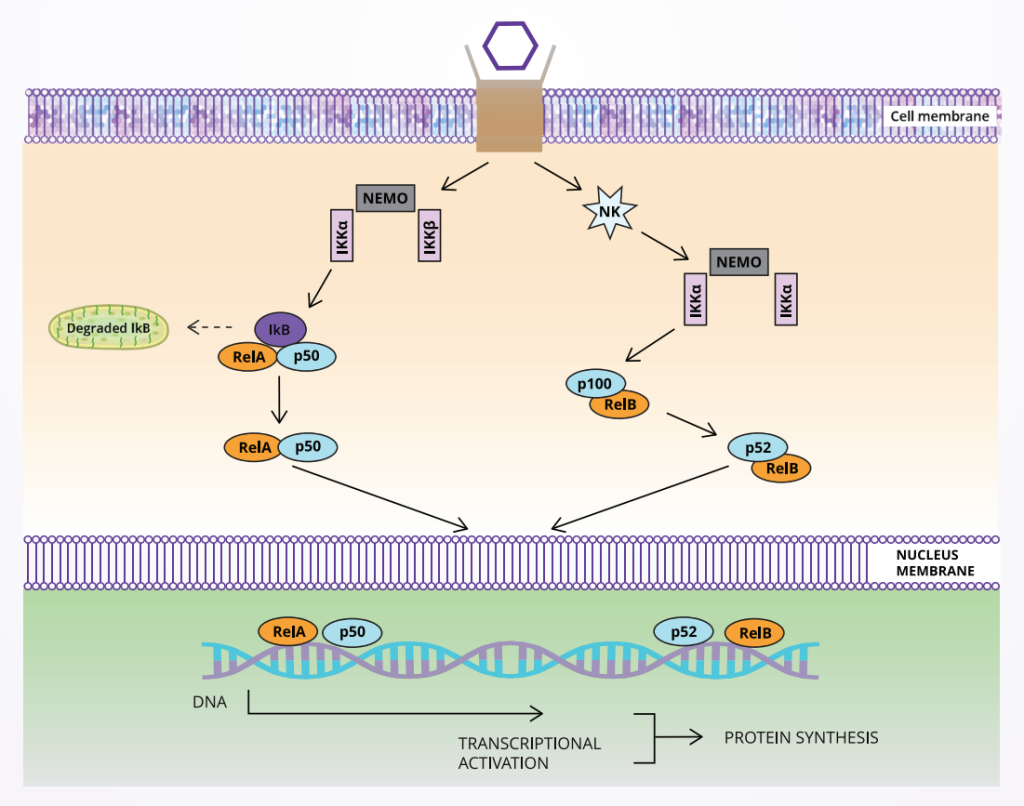
Regulate inflammatory signaling pathways:
The occurrence of inflammatory responses involves the activation of multiple signaling pathways. NMN can regulate the occurrence and development of inflammatory responses by influencing the activity of these signaling pathways, such as the NF-κB signaling pathway, etc.
17. Promote DNA repair
Activate DNA repair enzymes:
DNA may be damaged during processes such as replication and transcription, and it needs to rely on a series of DNA repair enzymes for repair.
NMN can increase the level of NAD +, activate the activity of DNA repair enzymes such as PARP, promote DNA repair, and maintain the stability of the genome.
Maintain telomere length:
Telomeres are protective structures at the ends of chromosomes. As the number of cell divisions increases, telomeres gradually shorten. When telomeres shorten to a certain extent, cells will stop dividing and enter a senescent state.
NMN can activate the Sirtuins protein, stabilize the length of telomeres and delay the aging of cells.
18. Regulate the biological clock
NMN can regulate the expression and activity of genes related to the biological clock by influencing the NAD + -dependent Sirtuins protein family and other pathways, making the biological clock rhythm more stable, helping the body better adapt to the changes between day and night, improving sleep quality, and enhancing the overall physiological state of the body.
19. Improve sexual function
Improve blood supply to reproductive organs:
A good blood supply is crucial for the normal function of reproductive organs.
NMN can promote the production of vasodilator factors such as nitric oxide by vascular endothelial cells, improve the blood supply to the reproductive organs, and enhance sexual function.
Regulate sex hormone levels:
Sex hormones such as androgens and estrogens play an important regulatory role in sexual function.
NMN may improve sexual function by influencing the function of the endocrine system, regulating the secretion and metabolism of sex hormones, and increasing the levels of sex hormones.
20. Improve mitochondrial function
Enhance mitochondrial energy production:
Mitochondria are the “energy factories” within cells, responsible for converting nutrients into ATP.
NMN can increase the level of NAD + in mitochondria, enhance the activity of the mitochondrial respiratory chain complex, improve the energy production efficiency of mitochondria, and provide more energy for cells.

Maintain the structural and functional integrity of mitochondria:
The structural and functional integrity of mitochondria is crucial for the normal metabolism and survival of cells.
NMN can reduce oxidative stress and damage in mitochondria.
highly praised effects of NMN
Anti-aging, weight loss, skin care, memory, cardiovascular health
NMN, or nicotinamide mononucleotide, is an inherent substance in the human body and is also rich in some fruits and vegetables.
In the human body, NMN is the precursor of NAD+, and its function is manifested through NAD+.
1. Anti-aging
Repairing DNA damage: NMN can increase the level of NAD+ within cells, and NAD+ is an important substrate for DNA repair enzymes such as PARP1.
Adequate NAD+ can ensure the normal functioning of enzymes such as PARP1, promptly repair damaged DNA within cells, and reduce cell senescence and functional disorders caused by the accumulation of DNA damage.
Activating longevity proteins: NAD+ is a necessary substance for the Sirtuins protein family to function. Sirtuins proteins play significant roles in cellular metabolism, stress response, and gene expression regulation. They can regulate numerous aging-related signaling pathways through deacetylation and delay the process of cellular aging.
Regulating cellular metabolism: NMN helps maintain normal metabolic functions within cells and ensures the normal operation of mitochondria.
As people age, mitochondrial function gradually declines. Supplementing NMN can enhance mitochondrial function, improve the efficiency of cells in generating energy, keep cells in a good metabolic state, and thereby delay the aging of the body.
2. Lose weight
Regulating energy metabolism: NMN may affect enzymes and signaling pathways related to energy metabolism by increasing NAD+ levels, enhance the metabolic activity of adipocytes, and promote the breakdown and consumption of fat.
It can also regulate mitochondrial function, enabling cells to utilize energy more efficiently and reduce fat accumulation.
Improving insulin sensitivity: NMN helps to improve insulin resistance, making body cells more sensitive to insulin, thereby better taking up and utilizing glucose in the blood, reducing the chance of blood sugar being converted into fat, and helping to control weight and reduce body fat content.
Regulating adipocyte differentiation: NMN may be involved in regulating the differentiation process of adipocytes, inhibiting their excessive generation and proliferation, and reducing the formation of adipose tissue, thereby having a positive impact on weight loss and weight management.
3. Skin care
Promoting collagen synthesis: NMN can activate related signaling pathways to promote the synthesis of collagen by skin fibroblasts, increase skin elasticity and firmness, and reduce the formation of wrinkles.
Enhancing antioxidant capacity: NMN can improve the antioxidant defense system within cells, reduce the damage of free radicals to skin cells, lower oxidative stress responses, prevent skin aging and the formation of pigmentation, and keep the skin smooth and delicate.
Improving skin metabolism: It helps maintain the normal metabolic function of skin cells, promotes the renewal and regeneration of skin cells, making the skin healthier and more lustrous. It can also enhance the skin’s barrier function and improve the skin’s resistance to the external environment.
4. Memory improvement
Protecting nerve cells: NMN increases the level of NAD+, providing sufficient energy for nerve cells, enhancing their activity and stability, reducing their damage and death, protecting the neural structure of the brain, and laying the foundation for maintaining and improving memory.
Promoting the synthesis of neurotransmitters: NMN may be involved in regulating the synthesis and release of neurotransmitters, such as acetylcholine and other neurotransmitters closely related to learning and memory. Adequate neurotransmitters facilitate signal transmission between nerve cells, enhance the brain’s information processing capacity, and thereby improve memory and cognitive function.
Improving cerebral blood flow and metabolism: Supplementing NMN can enhance the blood circulation of the brain, increase the supply of oxygen and nutrients to the brain, and simultaneously raise the metabolic level of brain cells, creating a favorable internal environment for the normal function of the brain and memory improvement.
5. Cardiovascular health
Protecting vascular endothelial cells: NMN can enhance the NAD+ level within vascular endothelial cells, promoting the release of nitric oxide by endothelial cells. Nitric oxide can dilate blood vessels, increase vascular elasticity, lower blood pressure, and also inhibit platelet aggregation and white blood cell adhesion, reducing the risk of vascular inflammation and thrombosis.
Reducing oxidative stress and inflammatory responses: NMN protects the cardiovascular system from oxidation and inflammation by enhancing the antioxidant capacity of cells, reducing the generation of oxidative stress products, lowering the expression of inflammatory factors, and alleviating inflammatory damage to the vascular wall.
Improving myocardial energy metabolism: In myocardial cells, NMN increases the level of NAD+, which helps enhance mitochondrial function, optimize the energy metabolism of myocardial cells, improve myocardial contractility, maintain the normal function of the heart, and prevent the occurrence and development of cardiovascular diseases.



